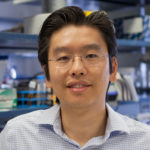5th International Synthetic & Systems Biology Summer School | Certosa di Pontignano - Siena - Tuscany - Italy | July 25-29, 2018
Full Programme
Arrival: 24 July 2018
Day 1
25 Jul 2018
Day 2
26 Jul 2018
Day 3
27 Jul 2018
Day 4
28 Jul 2018
Day 5
29 Jul 2018
8:00 - 9:00
Breakfast
09:00 - 09:50
09:50 - 10:40
Lecture 1: Systems Biology of Yeast Metabolism: Big Data Generation
Metabolism is highly complex and involves thousands of different connected reactions; it is therefore necessary to use a holistic approach for studying metabolism. With the advancement of different omics technologies... Read More
10:40 - 11:10
Coffee break
11:10 - 12:00
Lecture 2: Systems Biology of Yeast Metabolism: Modeling
Metabolism is highly complex and involves thousands of different connected reactions; it is therefore necessary to use mathematical models for holistic studies, the use of mathematical models in biology is... Read More
12:00 - 12:50
12:50 - 14:30
Lunch
14:30 - 15:20
15:20 - 16:10
16:10 - 16:40
Coffee break
16:40 - 17:30
Designing New Tools for Synthetic Biology in Mammalian Cells
Synthetic Biology aims at developing and applying engineering tools to sense and process endogenous information and to implement robust responses to intracellular conditions. Mammalian synthetic networks build on the conjugation... Read More
17:30 - 18:20
(Synthetic) gene circuit architecture control of microbial phenotypic variability
The application of synthetic biology tools to investigate phenotypic variability has provided insight into the regulatory mechanisms that tune biological noise in natural networks. The efficiency of these mechanisms has... Read More
18:20 - 19:40
19:40 - 21:30
Group Photo & Welcome Cocktail
8:00 - 9:00
Breakfast
09:00 - 09:50
Lecture 1: Designing Biology for Health
Here, I will present background on health-related problems that can be addressed by synthetic and systems biology. I will present a personal case study on development of a cancer therapeutic... Read More
09:50 - 10:40
Lecture 1: Synthetic Genetics I: beyond DNA and RNA
Synthetic biology seeks to probe fundamental aspects of biological form and function by construction (i.e. resynthesis) rather than deconstruction (analysis). Synthesis thus complements reductionist and analytic studies of life, and... Read More
10:40 - 11:10
Coffee break
11:10 - 12:00
Lecture 2: Designing Biology for Sustainability
One major thrust for synthetic biologists is to harness the ability natural chemical processes to create a more sustainable industry for chemicals, consumables, materials and energy. I will cover new... Read More
12:00 - 12:50
Lecture 2: Synthetic Genetics II: Replicating RNA with RNA
A critical event in the origin of life is thought to have been the emergence of an RNA molecule capable of self-replication as well as mutation, and hence evolution towards... Read More
12:50 - 14:30
Lunch
14:30 - 15:20
Lecture 1: Multiomics Integration
With the wealth of omics data that is rapidly and continuously being generated, new computational methods are required to interpret data-centric studies aiming to integrate multiple omics data types. This... Read More
15:20 - 16:10
Deciphering Yeast Physiology by a Multi‐Scale Framework Integrating Cell Cycle and Metabolism
Cell division cycle and metabolism are coupled networks. Cell growth and division require synthesis of macromolecules which is dependent on metabolic cues. Conversely, metabolites involved in storage metabolism fluctuate periodically... Read More
16:10 - 16:40
Coffee break
16:40 - 17:30
Lecture 2: Informing Cancer Biology using Computational Proteogenomics
Cancer has been well established as a disease of the genome, with a subset of somatic mutations frequently acting as drivers of tumor progression, and thereby influencing diagnosis, prognosis and... Read More
17:30 - 18:20
18:20 - 19:40
19:40 - 21:30
Dinner
8:00 - 9:00
Breakfast
09:00 - 09:50
Lecture 1: Design and Construction of Synthetic Yeast Chromosomes
In this lecture, I will discuss the design principles of the synthetic yeast genome, and approaches to construct the synthetic chromosomes including methods to debug the design problems.
09:50 - 10:40
Lecture 1: Optogenetic Control of Protein Nuclear Trafficking
Intracellular processes are controlled in many ways. One way consists in placing proteins in the right place at the right time. For instance, transcription factors (TFs) are often kept cytoplasmic... Read More
10:40 - 11:10
Coffee break
11:10 - 12:00
Lecture 2: Split Inteins as Synthetic Biology Tool to Control Biological Processes
Biological processes are carried out by complex networks of interacting proteins that continuously adapt to cellular environment and external stimuli with structural changes, which lead to new functional properties and... Read More
12:00 - 12:50
Lecture 2: SCRaMbLEing the Synthetic Yeast Genome
This lecture we will focus on the SCRaMbLE (Synthetic Chromosome Rearrangement and Modification by LoxP-mediated Evolution) method to evolve the synthetic yeast strains for novel phenotypes.
12:50 - 14:30
Lunch
14:30 - 15:20
Lecture 1: The Search for Genetic Drivers of Cancer
The remarkable efforts recently carried out to fully understand the mutational landscape of various cancer types have motivated the development of many computational approaches to interpret cancer genomic data. This... Read More
15:20 - 16:10
Lecture 2: Mutational Signatures in Environmental Carcinogen-Induced Tumours
By analysing the catalogue of the somatic mutations present in several cancer genomes it is possible to understand the mutational processes active in different tumours. This session will introduce some... Read More
16:10 - 16:40
Coffee break
16:40 - 17:30
Synergies between synthetic biology and metabolic engineering for improving bioproduction
Synthetic biology has emerged as a powerful discipline that facilitates the manipulation of cells in a more reliable, predictable and standardized manner. Metabolic engineering aims to modify metabolic pathways to... Read More
17:30 - 18:20
MAST: A Multi-Agent based Spatio-Temporal Model of the Interaction between Immune System and Tumor Growth Feeded with Single-Cell Data
In recent years, single-cell technologies, both at imaging and sequencing level, have given the possibility to observe how tissues and organs are spatially and temporally organized as a system of... Read More
18:20 - 19:40
8:00 - 9:00
Breakfast
09:00 - 09:50
Lecture 1: Design, Construction, and Analysis of a Synthetic Minimal Bacterial Cell
The minimal cell is the hydrogen atom of cellular biology. Such a cell, because of its simplicity and absence of redundancy would be a platform for investigating just what biological... Read More
09:50 - 10:40
Lecture 1: An Introduction to Whole-Cell Modeling
Whole-cell (WC) computational models that predict phenotype from genotype are needed to help bioengineers rationally design bacteria and other organisms. Despite their potential, numerous challenges remain to achieve WC models.... Read More
10:40 - 11:10
Coffee break
11:10 - 12:00
Lecture 1: Multiplex Genome Engineering: Methods and Applications
Recent advances in genome engineering have enabled an unprecedented scale, accuracy, and ease to manipulate bacterial and eukaryotic genomes. In this lecture, I will discuss key contemporary methods for genome... Read More
12:00 - 12:50
Lecture 2: Building and Grand Scale Engineering of Eukaryotic Viral Genomes and Chromosomes
Over the last 5 years, the JCVI Synthetic Biology team, which is best known for construction of bacterial cells programmed with synthetic genomes, has also taken on projects that required... Read More
12:50 - 14:30
Lunch
14:30 - 15:20
Lecture 2: Scalably Building, Simulating, Calibrating, and Validating Whole-Cell Models
Recently, we and others demonstrated the feasibility of WC models by developing the first model that captures the function of each individual gene. However, it took over 10 person-years to... Read More
15:20 - 16:10
Lecture 2: Cellular Recording and Memory: Approaches and Uses
Recording environmental and biological information across cell populations over time enables new systems for biosurveillance and cellular sentinels. In this lecture, I will discuss the framework to chronicle cellular events... Read More
16:10 - 16:40
Coffee break
16:40 - 17:30
Designing Biosensors to Monitor Protein Folding and Aggregation
A growing number of diseases seem to be associated with toxic deposition of protein aggregates. Some of these diseases — such as Alzheimer’s disease— have been recognized for a long... Read More
17:30 - 18:20
Modelling Noise in the Design of Synthetic Gene Networks
Random variability in gene expression (noise) might severely impact on cellular behaviours. At odds with other engineering applications, where noise is usually associated with a deterioration of the functional properties,... Read More
18:20 - 19:40
19:40 - 21:30
Dinner
8:00 - 9:00
Breakfast
09:00 - 09:50
Lecture 1: From Networks to Function – Computational Models of Organogenesis
One of the major challenges in biology concerns the integration of data across length and time scales into a consistent framework: how do macroscopic properties and functionalities arise from the... Read More
09:50 - 10:40
Lecture 2: Physical Driving Forces of Epithelial Organisation
In the second lecture, I will focus on epithelial organisation. Epithelial cells adhere tightly, forming a polygonal lattice. The resulting cell packing exhibits striking universal regularities, regardless of the organism... Read More
10:40 - 11:10
Coffee break
11:10 - 12:00
PISA Technology : a Novel Tool to Select Intrabodies to Target the Post-Translationally Modified Proteome in the Cell
The complexity of the proteome greatly outnumbers that of the genome and the diversity is mainly due to post-translational modifications (PTMs). Indeed, PTMs are fundamental regulators of many pathways and... Read More
12:00 - 12:50
12:50 - 14:30
Lunch
14:30 - 21:30
Social Tour & Dinner
Departure: 30 July 2018






















